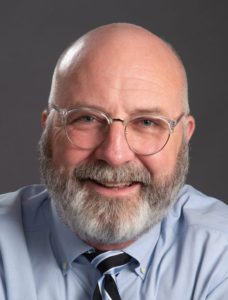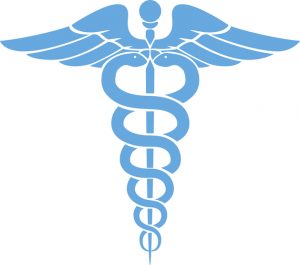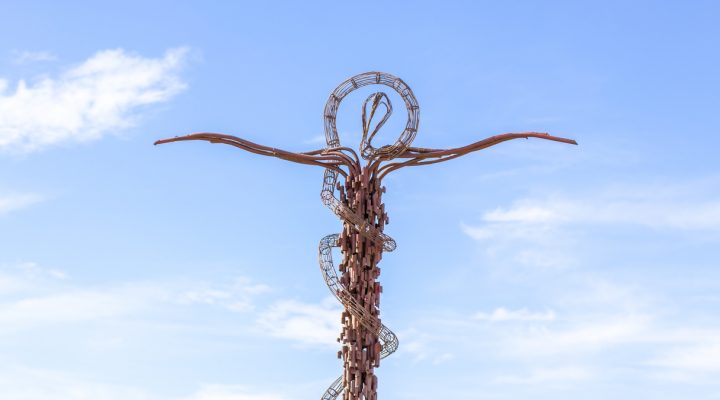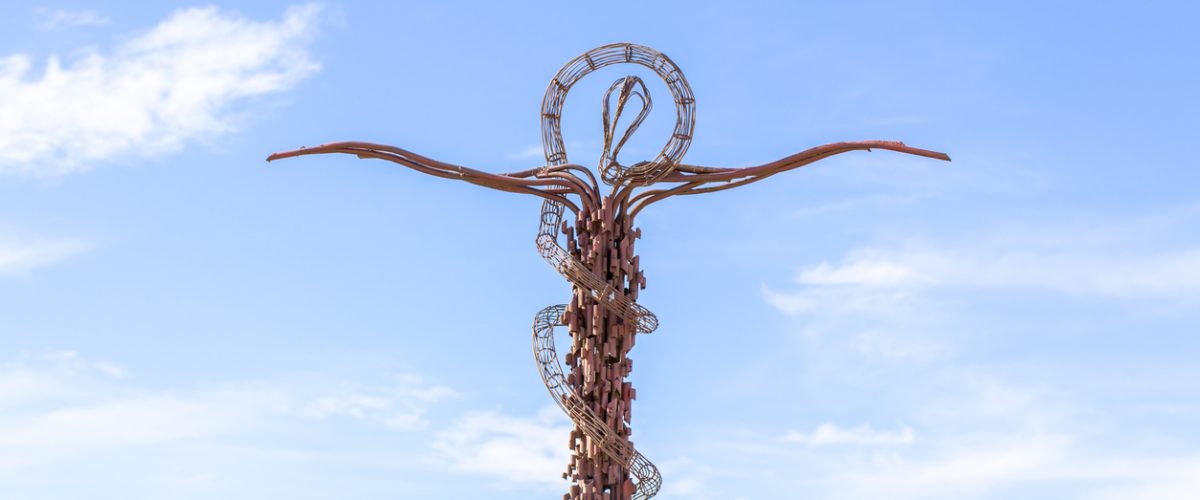It has been six years and less than one month since the last time my life came to standstill over a medical emergency. That was Dec. 13, 2017, when I unexpectedly suffered a spinal cord injury during a surgery that left me unable to use my right hand and my right arm for months.
I learned a lot of lessons then, and I wrote about some of them here at BNG. I’m still learning a lot of lessons from that injury that, although it has improved, haunts my body every day. And I know from your stories that many of you also know firsthand about these things.

Mark Wingfield
When you have such an experience, it is common to assume it’s a once-in-a-lifetime event. Unfortunately, that’s not always the case. That’s what I found out this past week when, without warning, I came down with a severe case of cellulitis in my right leg. I didn’t even really understand what cellulitis is or how dangerous it is or how bad it hurts or how quickly it can move. And so, imagine my surprise when I went to my doctor Monday morning, and within less than 10 minutes, he sent me straight to the emergency room.
We have no idea the source of this, the reason for it, why it is so severe. And even as they treated me at the hospital, I was assured that with oral antibiotics this would clear quickly. Some said maybe in 12 hours, certainly within a day. Yet I remained in the hospital four nights and five days. When I left, my leg still looked so horrible you would not want to see it, even though it technically is healing and my blood work numbers are coming into much better range.
Often, the things we fear most are not the things that get us. It is things we don’t know to fear. And maybe that’s OK.
Of all the things I could imagine being hospitalized for, this was not on my bingo card. And isn’t life like that? Often, the things we fear most are not the things that get us. It is things we don’t know to fear. And maybe that’s OK.
I have been reflecting, though, on the difference in the way I’ve responded in 2024 and the way I responded in December 2017 and into the winter months of 2018. One thing I know for sure is my spiritual life is not as strong as it was. I am not as resilient as I was. I have seen more of life, and I have seen more tragedy in life. Maybe that’s part of getting old.
Some days, I wish I could have a simpler faith that believes prayer alone will solve this and faith is the victory. But it seems much harder these days, as I think it does for so many of us.
That’s true, first of all, because COVID changed our world. The pandemic not only changed our perspective on disease, it heightened our sense of vulnerability. We all see the world differently today than we did before that fateful day in March 2020 when the world shut down.
I’ve seen this play out among so many people around me. And it has fascinating ramifications.
One of the odd things I noticed as a funeral officiant, and I have confirmed with funeral director friends, is we are having more open-casket services today than we did before the pandemic. Why? I don’t know, and neither do the funeral directors. Some speculations focus on the idea of wanting to see and be close to loved ones at their time of difficulty, even their time of passing, because we were denied seeing them during the pandemic. One thing COVID did for us is it caused us to say we will not hide the reality of death and danger any longer. We need to see what’s going on.
The same is probably true when illness strikes. We feel more vulnerable today than we did before. We understand how quickly the world can change. We understand everything can appear fine one day and not be fine the next day. Of course, that’s always been true. But we understand it more now. We have in a way had our eyes opened to the ways of the world.
But for me, there’s more to it than that. It’s also part of my own spiritual journey, having been raised in Baptist fundamentalism, institutionalized in Baptist doctrine, living in denominational job after denominational job, culminating in 16.5 years as a pastor where I was one of the people who needed to give the right answers at the right times.
One of the things that is hard to admit is that even as a so-called “progressive” Christian, many of the answers I have given in the past may have been platitudes more than deep truth. Everything about life is so much more complex.
One of the things that is hard to admit is that even as a so-called “progressive” Christian, many of the answers I have given in the past may have been platitudes more than deep truth. Everything about life is so much more complex.
For me, this cynicism has only grown in the age of our national and global political unrest. It causes me, like many of you, to wonder why the wicked prosper and why the righteous suffer. It causes me to wonder if God actually hears our prayers. Which leads us not to want to pray.
One of the things that drives me mad on social media is when someone posts a health need and people quote Scripture verses at them. It’s not like they don’t know the Scripture verses or can’t find them themselves. This is not a Bible drill competition. What people need to hear is some word of hope from their friends that is not a platitude and not a verbatim answer out of a box.
An irony about being in the hospital where I’ve lived this week is that it’s a hospital near my house where for two decades I visited our church members every week. I’ve been in the hallways of this hospital a lot. And even in the emergency room, every gurney-trip down a hallway prompted memories of someone being in that room, someone dying in that room, someone being in distress in that room, my own mother being cared for in that room. The place is haunted in that regard.
And yet the ER is a place of healing. It’s a place that likely saved me this week. Because of the action of my doctor, who realized what was happening to me and sent me straight there, I was able to get the treatment I needed.
After my last injury, I got a couple of tattoos. One of them is part of an international effort to raise awareness against suicide, Project Semicolon. Another is a tattoo of my own making on my right arm that still hurts to this day to remind me every day to be thankful for what I have and not to be bitter for what I don’t have.

Caduceus medical symbol as a health care and medicine icon .
I’ve been thinking about getting a third tattoo on the same arm. The one I have in mind seems even more appropriate today. It would be an image of the Rod of Asclepius. This is the ancient symbol you know and have seen as a medical sign. It’s the symbol on barber polls of old. It is the symbol for a lot of medical doctors on their stationery and office signs.
The symbol has both Greek and Jewish roots. It shows up in the story of Moses and the children of Israel wandering in the wilderness. If you remember, in that story, the people are upset God has not heard their prayers, in which they complained things are not going the way they thought they would go — that they’ve ended up in a tragedy instead of a comedy. And because of the things they do, God sends snakes to devour the land. And then, Moses begs God for a cure to save his disbelieving people.
God tells Moses to create a bronze image of a snake and lift it up on a rod for all to see. And when the people look at it, they will live. When they look up at the very symbol of the thing that is plaguing them, they will find healing. It’s also a foreshadowing to the cross, to be sure.
But most of all, it is a symbol reminding us we must face our fears and come to grips with the most difficult parts of life. For me, this is not a fix, it’s not a spiritual crutch. It is a sign that we need to look beyond ourselves to the wonders God has given us.
I’m thankful today for those doctors who carry that symbol in their profession, who have helped me and help many of you. Medicine is indeed a spiritual profession.
We don’t have to quote Bible verses; we don’t have to shout out Scripture. According to the Old Testament story, we need to look and live.
As I return home from a week that has changed me, that’s what I hope to do.
Mark Wingfield serves as executive director and publisher of Baptist News Global. He is the author of the new book Honestly: Telling the Truth About the Bible and Ourselves.
Related articles:
Six lessons living with chronic illness has taught me about surviving a pandemic
Five ways to be an ally to those battling chronic illness
What chronic back pain teaches me about pastoring
Three years ago today, our world changed


